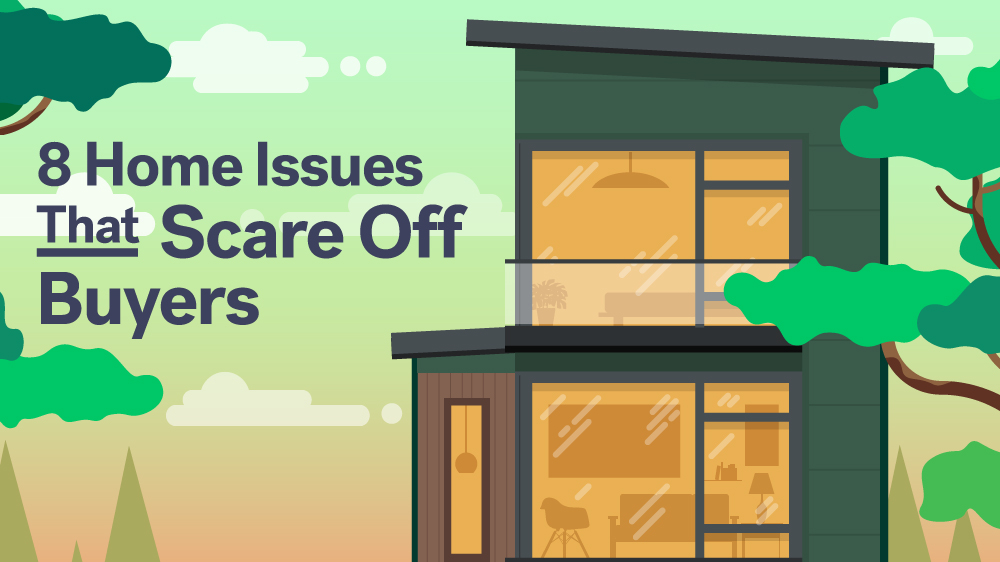How To Win A Bidding War Without Overspending


Winning a bidding war requires tactful strategy. What’s your next move?
Right now we are in a Seller’s Market here in Solano County. Oftentimes that means multiple offers over list price. It can be a frustrating and exhausting process. Read on for strategic tips!
It’s possible to win a bidding war without paying a cent more than you budgeted for.
-
Know what you can really afford
As far as emotional purchases go, buying a home ranks right up there with choosing a wedding dress — only the financial stakes are much higher. Unless you know ahead of time exactly how much house you can afford, you could easily be sucked into spending too much. Your lender or financial adviser can help you determine that number. Then it’s time to play ball.
“Submit your best and final offer early,” says Skyler Irvine, senior partner at Myriad Real Estate Group in Phoenix, AZ. “If $1,000 keeps you from pulling into the driveway of your dream home just because you wanted to play hardball, then you might regret this more than you can imagine.” But the flip side is also true. “If you get outbid because someone offered more than you were comfortable with spending, then you didn’t lose anything and made a smart financial decision.”
Here’s a real-life strategy from a client of Naples, FL, agent Gordon Campbell on how to submit the best offer in a “best and final” situation without going too high: “They simply added a clause stating that they would pay $1,000 more than the next ‘best and final’ capped at the original price as seen in the MLS.” The outcome? “They got the property for slightly more than the other bidder.”
-
Talk with the listing agent
You can put in an offer, but unless your agent makes the effort to speak with the listing agent, your offer, in a multiple offer scenario, will probably not stand out. Gary Hughes, a Virginia real estate agent, recently received 13 offers for a property he listed. “Twelve were just emailed, and the buyers’ agents did not speak to me,” he says. But one agent called and had the lender follow up. “The lender and the buyer’s agent were able to address a concern in a way that assured me it would get to settlement. It wasn’t the highest offer, but it was close. Those conversations made all the difference.”
-
Propose a shorter closing
It’s always beneficial to find the seller’s motivation for selling (if you can). Let’s say they just accepted a new job in another part of the country. This seller is probably highly motivated to sell quickly. “If you can close the deal in two or three weeks, you may win over the higher offer that comes with a six-week closing period,” says Eric Bowlin, a real estate investor.
But just how do you go about closing faster? Here’s one way: “Tighten up your inspection time frame so sellers know that they can get through to a closing date quicker,” says William Golightly, a Florida agent.
Buyers can also be preapproved, or even better, get a conditional approval, from their lender. Going through the mortgage process first allows you to close just as fast as all-cash buyers do. -
Rent the house back to the sellers
Some sellers aren’t interested in a short closing at all. In fact, the opposite could be true. Sellers who don’t have to sell quickly but who are just making a change, such as downsizing or upsizing, might want a long closing or some sort of flexible deal to give them time to find their new home. “Being able to rent back the property to the seller for a few months while they solidify their next purchase can go a long way into not needing to overbid on the property,” says Aaron Norris, a California real estate investor with The Norris Group.
-
Submit an as is offer
The fewer conditions you put on negotiating the house price, the more attractive you look to sellers. Consider offering to buy the house as-is. Miami Beach, FL, agent Jill Hertzberg says, “You can opt out of conducting inspections.” But since this is an extremely risky proposition, Hertzberg suggests instead of waiving the inspection altogether, decrease the inspection period to two days maximum. Lilia Biberman, a Boca Raton, FL, agent says to only waive the inspection “if you have a firm grasp of all the possible defects a property may possess and the costs associated with remedying those defects.” Also, if you’ll be paying in cash, you don’t need a financing contingency, which protects buyers who don’t secure financing in time.
Source: Trulia Blog
11 Reasons Why Your Home Isn’t Selling


Your home is on the market and you really thought it would go into contract that first month, but it didn’t. Its not. No offers. Nada.
What’s up with that? Read on!
When you first put your house on the market, you might be hopeful for a quick sale—especially if you’ve put a lot of money into improving the house over the years and if the neighborhood is one that has historically attracted a lot of buyers. While you shouldn’t panic if the house doesn’t sell the moment you list it, you should begin to worry if the months start flying by without any real offers. If this is the case, here are 11 reasons why your house may not be selling.
1. You overvalued your property. If your house is overpriced, it’s simply not going to sell. Compare your property to similar properties that recently sold within your area to get a better idea of its true value. An experienced real estate agent can give you an accurate value of your home. Additionally, don’t make the mistake of tacking on the cost of any renovations you made. You can’t just assume that the cost of a renovation translates to added value.
2. Your listing is poor. If the listing of your home includes a poorly written description without any images, a lot of buyers are going to skip over it. Make sure you and your REALTOR® put an effort into creating a listing that attracts the attention of buyers. Make sure to add high quality photographs of both the interior and exterior of your home. Don’t forget to highlight unique features, as well.
3. You’re always present at showings. Let your agent handle your showings. Buyers don’t want to have the seller lurking over their shoulder during showings, especially during an open house. This puts unwanted pressure on the buyer, which will make them uncomfortable and likely chase them away.
4. You’re too attached. If you refuse to negotiate even a penny off your price, then there’s a good chance that you’ve become too attached to your home. If a part of you doesn’t want to sell it, or you think your house is the best house in the world, odds are you’re going to have a lot of difficulties coming to an agreement with a potential buyer.
5. You haven’t had your home professionally cleaned. A dirty house is going to leave a bad impression on buyers. Make sure you have a professional clean your carpeting and windows before you begin showing your house.
6. You haven’t staged your home. If you’ve already moved out, then don’t show an empty house. This makes it difficult for buyers to imagine living in it. Stage your house with furniture and decor to give buyers a better idea of how big every room is and how it can be used. You want the buyer to feel at home when they are taking the tour.
7. You kept up all of your personal decor. Buyers are going to feel uncomfortable touring your house if you keep all of your family portraits up. Take down your personal decor so that buyers can have an easier time imagining themselves living there.
8. Your home improvements are too personalized. You might think that the comic book mural you painted for your child’s room is absolutely incredible, but that doesn’t mean potential buyers will agree. If your home improvements are too personalized, it can scare off buyers who don’t want to pay for features they don’t want.
9. Your home is too cluttered. Even if your home is clean, clutter can still be an issue. For example, maybe you simply have too much furniture in one of your rooms. This can make the house feel smaller than it is.
10. Your home is in need of too many repairs. The more repairs that are needed, the less likely a buyer will want your house. Many buyers simply don’t want to deal with the cost or effort of doing repair work, even if it’s just a bunch of small repairs, such as tightening a handrail or replacing a broken tile.
11. You chose the wrong real estate agent. In our opinion, choosing the right real estate agent is simply the most important decision you make in selling your home. A good REALTOR® makes all the difference in selling your home within a reasonable time.
All these things can be fixed once you realize your mistake; however, the longer your property stays on the market, the less likely it will sell at listing price. One of the best ways to avoid making these common mistakes is by working with a professional real estate agent.
Source: RisMedia
8 Home Issues That Could Cause A Home Sale To Fall Through


You’ve put your home on the market and have a nice offer to put into contract. Check out these ways to avoid the pitfalls of your own escrow from falling through! Sage advice!
Do you know what issues most often turn off buyers or kill a sale? Here are some of the big ones.
From a leaky or aging roof to a positive radon test in the basement, there’s probably a lot on your home sale to-do list. And while, yes, you want your house to look its best for prospective buyers, there are some less-than-obvious issues you should probably address before you list your home for sale. Whether you’re selling a home in San Angelo, TX or planning to list your here’s the lowdown on some common issues that can cause a home sale to fall through.
8 Home Issues To Be Aware Of Before Listing Your Home
- Leaking or Old Roof. Roof issues are responsible for 39% of homeowner insurance claims, according to the National Roof Certification and Inspection Association. The typical lifespan of a roof is 20 to 25 years for shingles, and if your for-sale home’s roof is approaching the end of its lifespan, replacing it could get you to the closing table faster.
- Damaged Gutters. Routine gutter maintenance could prevent thousands of dollars in damage to the foundation of a home Recognizing the importance of this chore may require a big storm to pass through, but you’ll be glad you did when your home’s siding, windows, doors and foundation avoid water damage.
- Creaky Doors and windows. Expect buyers to open and close doors and windows. A jammed window or creaky door is a quick fix for you but could be a red flag to buyers who want a well-kept home. Replacing windows can bring a 50% to 80% return on your investment, but if they’re not a imperative fix, some sellers would be better served to bump this down a few notches on their must-do list.
- Outdated Appliances. Most buyers know they can easily buy a new fridge, but if most of your appliances look as if they belong on That ’70s Show, buyers may wonder what else needs replacing. If you’re planning to take your refrigerator with you when you move, make sure that’s mentioned in your sellers’ disclosure.
- Old Heating and Air Conditioning System . A well-maintained HVAC system can last up to 25 years, but an aged one could be a point of concern for buyers — and costly to repair or replace on the fly for a seller who doesn’t want to lose a sale.
- Termites. Termite infestation causes more than $5 billion in damage to U.S. homes each year, and sellers are typically required to disclose it. Adding a termite warranty from a remediation company can give your buyer peace of mind. But be warned: termites in your home can often be a deal breaker.
- Cracks in Foundation. Cracks in walls or a foundation are often a sign of larger problems. Be prepared to fix structural problems before your house hits the market, or have a plan in place for repairs if a buyer balks after an inspection.
- Radon. Radon is a naturally occurring, carcinogenic, radioactive gas that’s formed from the breakdown of uranium. In the home, radon is typically found in the basement or in lower levels. To put in perspective just how dangerous radon can be, consider this: Smoking is the number one cause of lung cancer — radon is No. 2.
- Bonus: High listing price. Pricing your home too high could ultimately cause your house to miss out on the right buyer, stay on the market longer, and bring in a lower price than the market supports.
Source: Trulia Blog
Boost Curb Appeal in a Day…


Sometimes when planning to sell a house, in the name of renovating interior living spaces, updating bathrooms, replacing appliances and adding decorative touches throughout the bedrooms, homeowners leave outdoor curb appeal as a last priority. While of course the inside of a home is important, sellers make a big mistake when they neglect the exterior. Why is a home’s exterior so important? Consider this: Curb appeal is often a potential buyer’s first impression of a home, the very thing that helps him/her decide whether or not to come inside. Whether they’re shopping online or by cruising through neighborhoods, the outside of your property is the first thing they’ll notice. If you’re selling your home or about to, how can you quickly and effectively tackle the outdoor appeal? Here are some key tips for boosting the curb appeal in a way that means quick turnaround and increased home value:
1. Start with the Front Door. Believe it or not, your home’s front door can be one of its most important assets. A new steel entry door consistently ranks as one of the most rewarding projects in home repairs, yielding an increase in home value that’s greater than the costs to install one. Likewise, to make the door especially captivating, consider painting it a bold, pleasing color that will grab attention and add charm. When buyers see a new door that looks attractive, they see another asset that makes your home the one to buy.
2. Make Any Necessary Repairs. Is the driveway cracked or the front doorbell busted? Now is the time to call a repair company or get out your own toolbox to make repairs. Buyers want turnkey, move-in-properties, and that means they want properties with repairs already done. Do the work now to get your home in ship-shape condition.
3. Keep Up with Landscaping. From mowing the lawn to pulling weeds, make sure you’re keeping up with your outdoor landscaping so that your home looks presentable and well cared for at all times. Overgrown bushes and dying plants are a surefire signal to potential buyers that you’re not caring for your home and leaving more maintenance for them to handle.
4. Add Lighting. While most buyers will come visit your home during the daytime, it’s not at all unusual for the most interested ones to also drive by at night to see what nighttime curb appeal is like. Landscape lighting can make all the difference in terms of how a home looks, so make an investment in attractive lighting options that illuminate and add interest to your property. “Solar landscaping lights are a great addition to any yard because they don’t require complicated and expensive wiring,” says Bob Vila. “Remember, though, you get what you pay for—cheap lights won’t last as long and simply won’t look as good.”
5. Touch Up Paint. A fresh coat of paint is just as powerful outside as it is inside, so to update your home’s look, repaint the exterior or at least touch up problem areas. Another idea is to paint the trim a new color that creates either a nice complement or contrast to your home’s overall look.
6. Make Over the Mailbox. You might not think a mailbox matters much, but it’s yet another one of those little details that can add up together to make a strong impression on a buyer.
7. Add Outdoor Furniture. From rocking chairs on the front porch to an outdoor patio set on the back deck, outdoor furniture creates outdoor living spaces that expand your home’s appeal. Look for attractive, durable pieces that will endure weather damage and look good for years to come — whether or not you include these pieces with the home sale, setting them up is a great way to stage your home for greater resale value.
The bottom line when it comes to curb appeal is that a little investment today can add up to big rewards tomorrow. Take the time to update, clean, repair and add value to your property’s exterior now and you will make it more attractive to buyers, not to mention more beautiful to come home to. Use the tips above to get started now.
Source: Rismedia

 Facebook
Facebook
 Twitter
Twitter
 Pinterest
Pinterest
 Copy Link
Copy Link
















